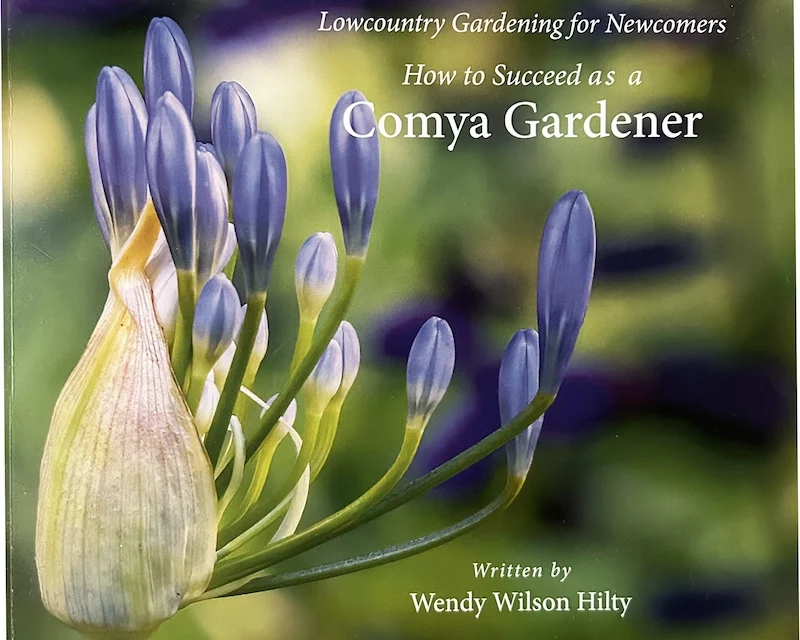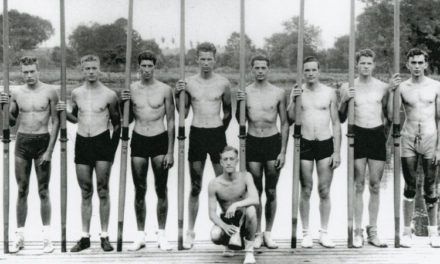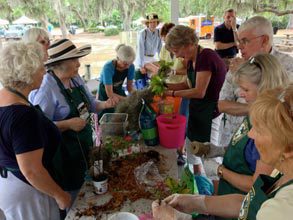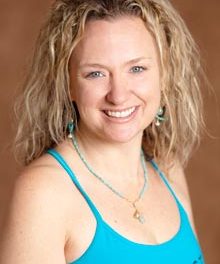 The biggest frustration that I encountered when I moved to the Lowcountry was trying to find a garden book that was specifically written for our unusual conditions. I bought a book on “Gardening in the Carolinas.” Imagine my surprise when it was basically the same book as “Gardening in Ohio” and “Gardening in New England” with a few things like a Palmetto and a Crepe Myrtle added. Most of what was written about were things that we cannot even dream to grow in this locale like lilacs and peonies. Maybe these plants can survive in the northern part of the state, but certainly not here. We have a little thing called a heat index and our heat zone is 9A. Sure, we get frosts and freezes, but our heat and humidity in the Lowcountry can challenge anyone’s gardening skills.
The biggest frustration that I encountered when I moved to the Lowcountry was trying to find a garden book that was specifically written for our unusual conditions. I bought a book on “Gardening in the Carolinas.” Imagine my surprise when it was basically the same book as “Gardening in Ohio” and “Gardening in New England” with a few things like a Palmetto and a Crepe Myrtle added. Most of what was written about were things that we cannot even dream to grow in this locale like lilacs and peonies. Maybe these plants can survive in the northern part of the state, but certainly not here. We have a little thing called a heat index and our heat zone is 9A. Sure, we get frosts and freezes, but our heat and humidity in the Lowcountry can challenge anyone’s gardening skills.
During the boredom of the Covid lockdown, I went online and entertained myself by taking the Royal Horticultural Society Level II Certification course from Britain. It was challenging, with lectures and homework graded by an expert. My tutor found my answers very amusing, especially when we had a class on gardening for wildlife. Instead of writing about how to build a habitat for hedgehogs, I wrote about keeping armadillos out of my garden as well as the morning I found an alligator in my front yard enjoying the sunrise. It was suggested that I should start a blog about gardening in my region. Thanks to prodding by Dr. Noel Kingsbury, who has written more garden books than I have room for in my office, my blog, The Comya Gardener, was born.
I had always loved the Gullah expressions for newcomers and old-time residents – comyas are newcomers and binyas are people who have been here for quite a while. It just sounds right! I had written my blog for nearly three years when I broke my foot while watching the Olympics. How can anyone break their foot while watching TV? I was not snowboarding or skating. In reality, I was watching curling (yawn) and my foot fell asleep. When I got up, it turned under and snapped. Ouch. It was then February and prime gardening season was about to begin. My doctor did not want me to hop around in the garden with a boot on my foot. What to do? I decided to write a gardening book just for the Lowcountry. No peonies, no lilacs, and with full attention paid to our unique conditions of heat and humidity.
Because I wanted photographs of my garden throughout the gardening year, it took a year to get the shots. I was fortunate in being able to work with an award-winning photographer, Joan Eckhardt, and an extremely talented graphic designer, Jan Hubbard. Then I had to find a printer. I did not want to be under the control of a publisher. I had written textbooks for years and was tired of writing under such constraints as textbook adoption committees in states as varied as New York, California, Texas, and Florida. I wanted this book to be about my personal journey as a northerner gardening in southern conditions for the first time. I also wanted to save gardeners new to the area from the frustrations, trials, and errors that I had endured and to give practical advice learned from my successes and failures as well as from the many courses I had taken from Clemson University, the RHS, and other sources. My graphic designer found a topnotch printer in Atlanta and my book, Lowcountry Gardening for Newcomers: How to Succeed as a Comya Gardener, became a reality.
Last March, 16 boxes containing 500 copies of my book arrived. It was just what I wanted – a book showing the possibilities for Lowcountry gardening, but not too preachy or serious. Gardening is supposed to be fun and relaxing. I tried to write with a sense of humor, for example titling chapters “Shrubs- Why Are They Eating My House?” and “I Have Killed More Things Than Most People Plant.” Is the book what I wanted? Absolutely.
Of course, without a publisher or Amazon to back my sales, it has been largely sold through word of mouth and at various gardening events. The books have also been selling locally at garden centers and slowly, but surely the boxes are getting emptied. I am not making a profit on the books, but just wish to recover the printing costs. I view the book as gift to all those gardeners who have helped me along the way and given me encouragement when I have tossed yet another dead plant on the compost heap. Gardening, like growing old, is not for sissies, but the rewards outweigh the perils. I hope that you are having fun in your garden although at this time of the year, it might be best to work in the very early morning hours or wait for our autumn cool down.







